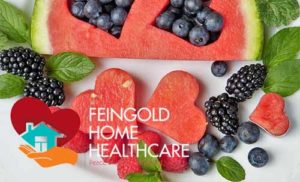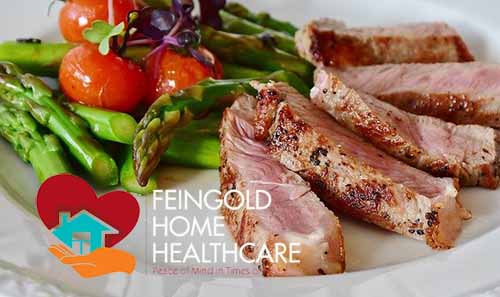Senior Depression and Nutrition
There’s an old expression that goes “you are what you eat” and there is certainly a lot of medical evidence to back that up.
Our physical and mental well-being is directly linked to what we eat and drink. The nutritional content of what we eat determines the composition of our cell membranes, bone marrow, blood, hormones, tissue, organs, skin, and hair. Our bodies are replacing billions of cells every day — and using the foods we consume as the source.
Depression is a major issue for people from all age groups and socio-economic backgrounds. These insights have been confirmed in many studies:
- Depression has a variety of signs and symptoms. These tend to differ between younger and older patients. In younger patients, the symptoms generally manifest as feelings of worthlessness and guilt.
 Victims may also be preoccupied with thoughts of suicide or death. However, in older patients, the symptoms may be physical in nature. These patients often report prevailing bouts of sleeplessness, fatigue, and agitation.
Victims may also be preoccupied with thoughts of suicide or death. However, in older patients, the symptoms may be physical in nature. These patients often report prevailing bouts of sleeplessness, fatigue, and agitation. - Depression and nutrition may act upon each other in both directions. It may cause weight loss due to a lack of interest in food. And, nutritional deficiencies can certainly worsen depression.
- Depression and diet may interact in very complex ways, making diagnosis difficult and resulting in a “failure to thrive” diagnosis in the oldest patients.
While some people may feel that it’s alright to let an older person enjoy a large quantity of sugar-laden foods “because he’s old and it makes him happy” the truth is it may be making him quite sad. Too much of anything is simply not good and can actually be very devastating mentally and physically.
A well balanced diet including Omega-3 fatty acids, vitamins, and other essential ingredients can actually help to pull a person out of depression and feel better!
It would be impractical (and expensive) to have a full-time nutritionist guide everyone’s meal preparation on a daily basis, but there are many steps people can take to eat healthier. If you are concerned about a senior family member or friend who may not be eating well, we can help. Members of our staff are trained to help with guiding our home health care patients towards healthier foods and better eating habits.
If you’re not sure about the cost of home health care or you have any questions at all, we’re here to help. We’ll be happy to discuss your concerns and offer options if you call (561) 210-9096


Recent Comments